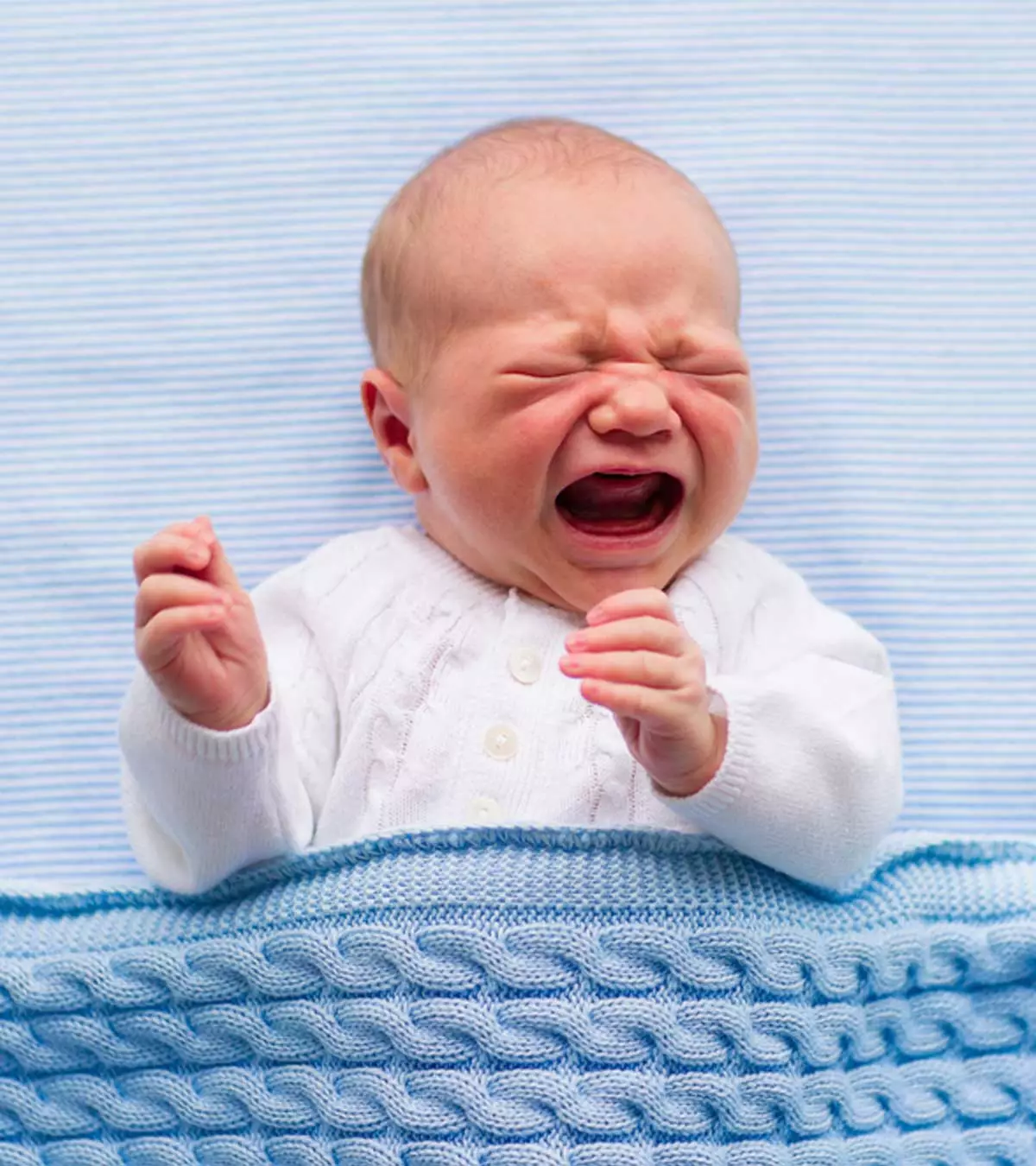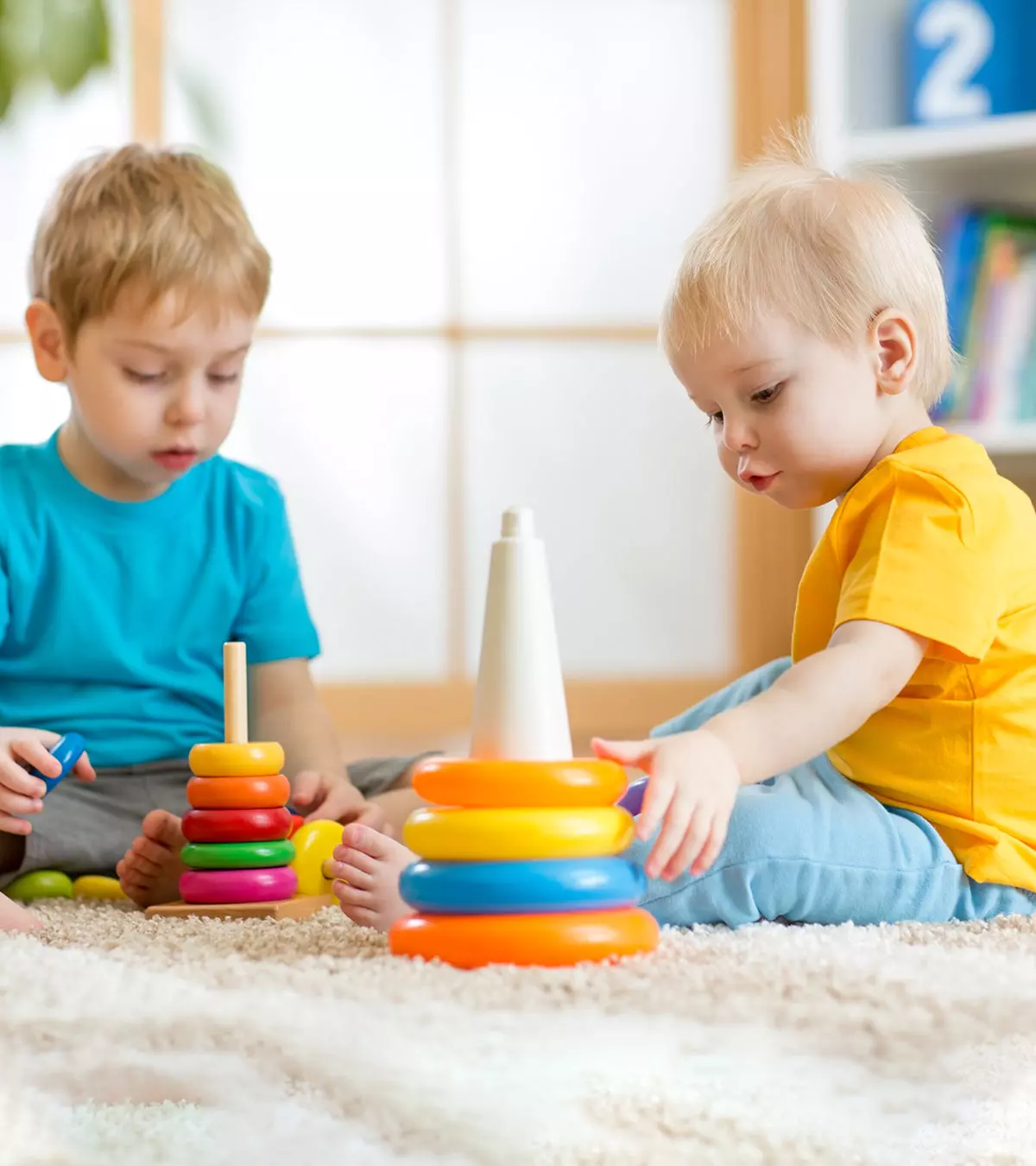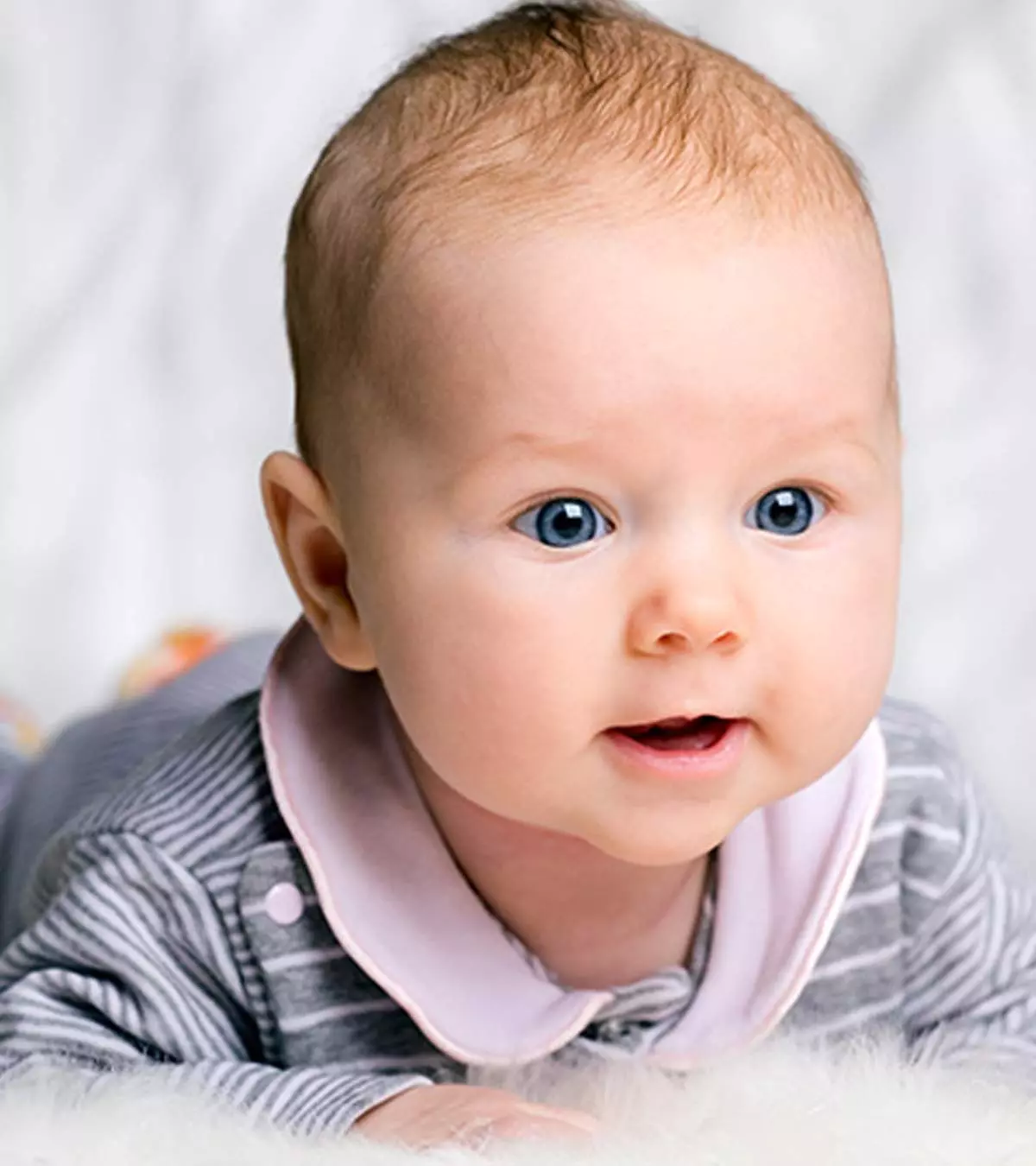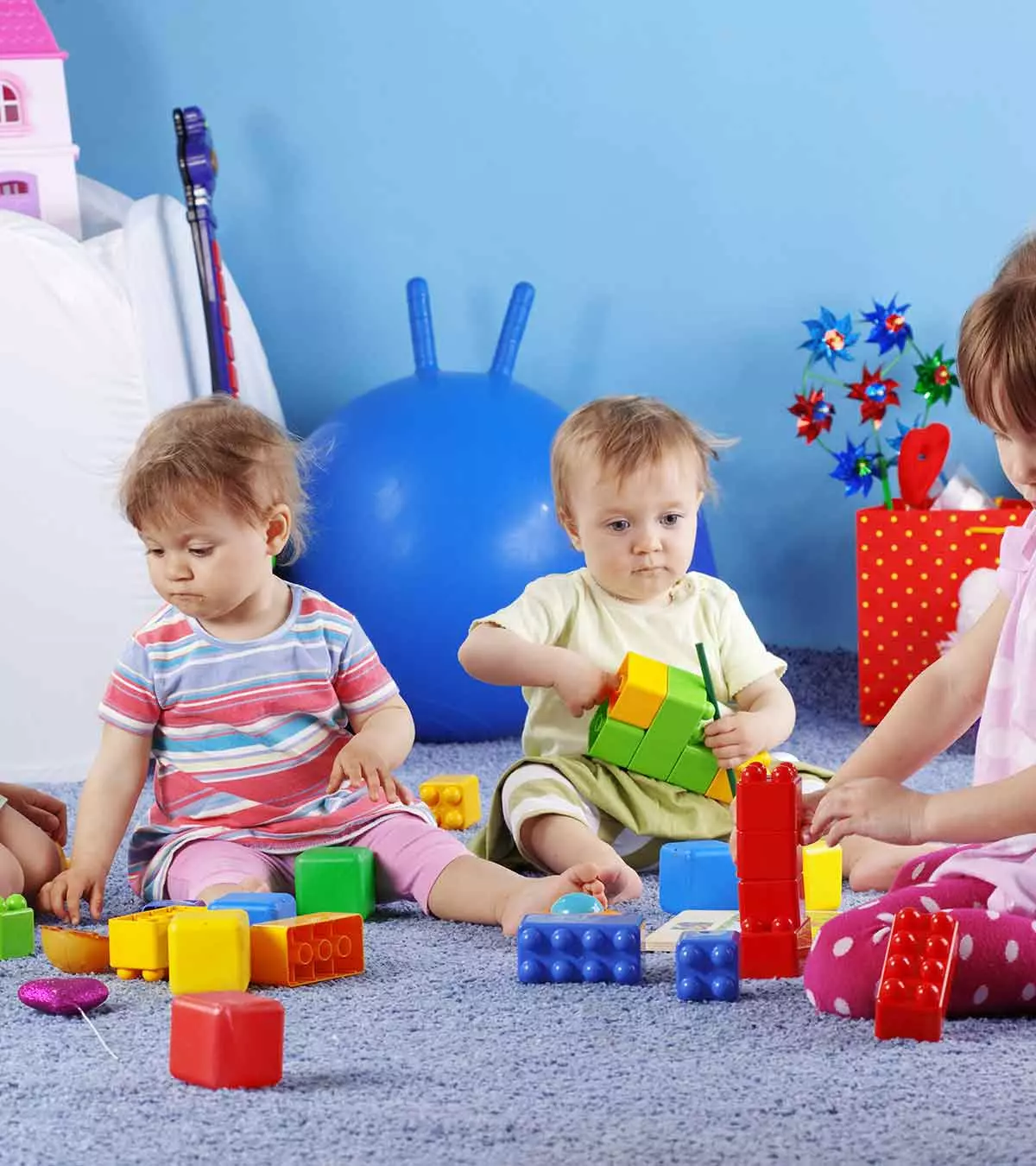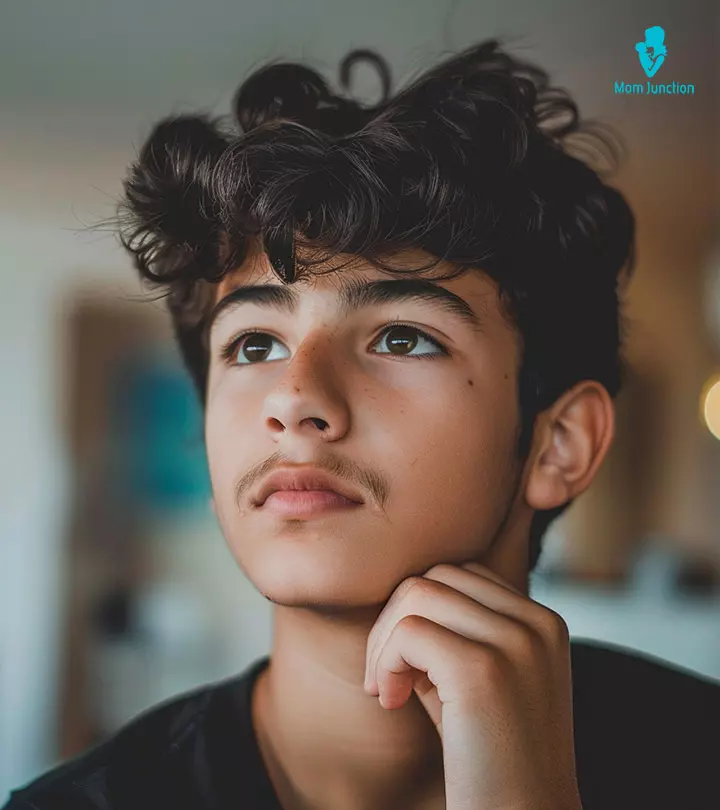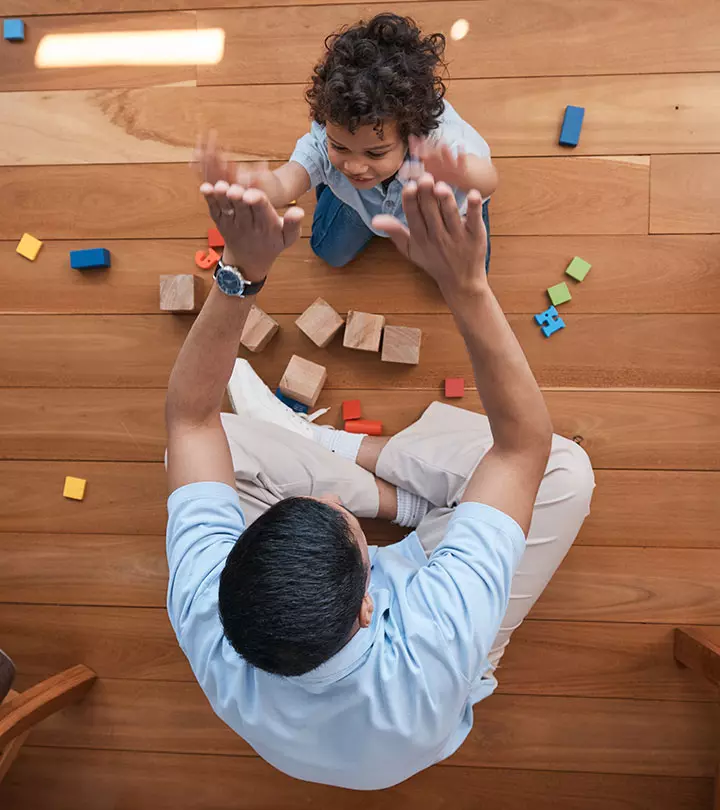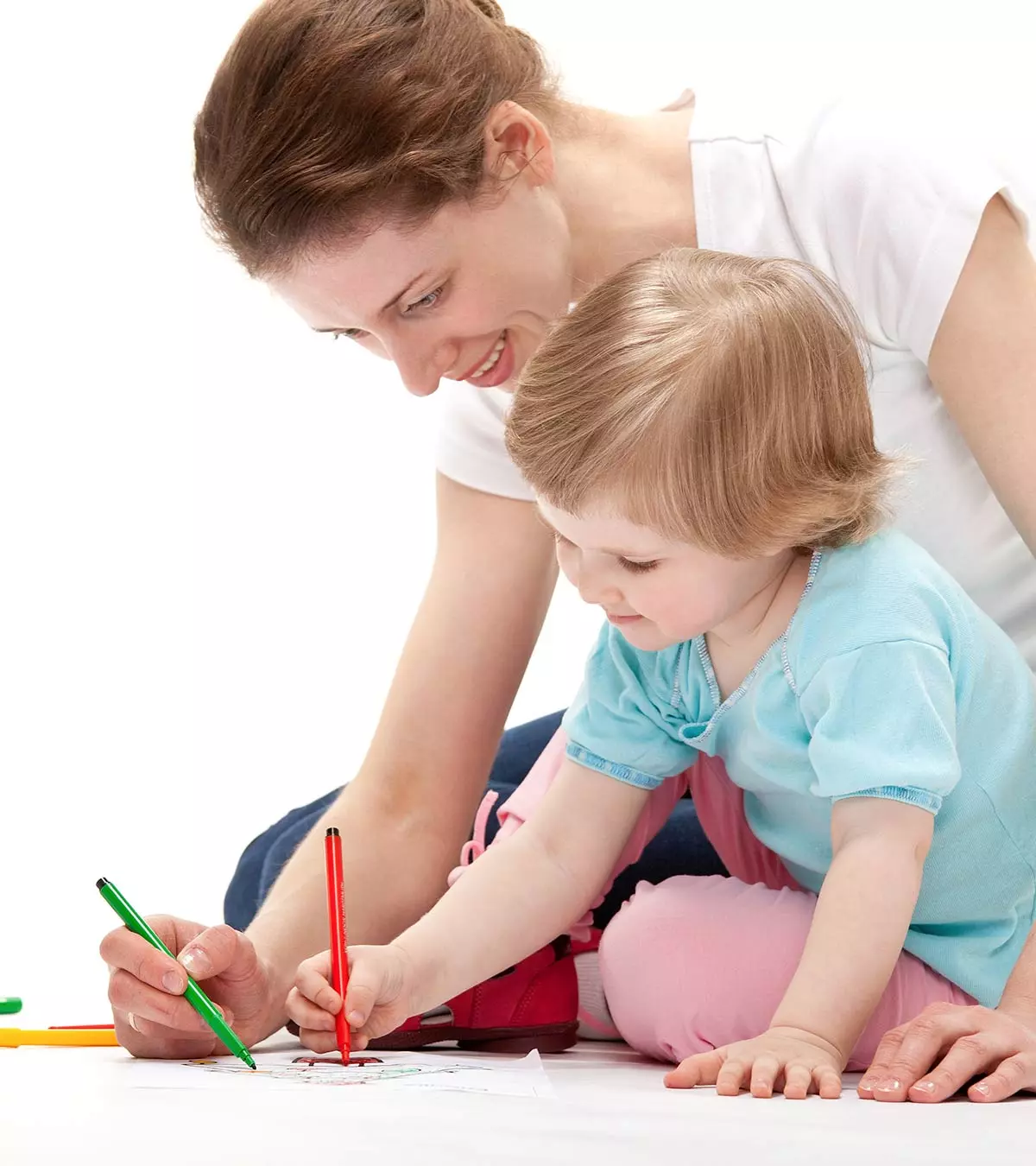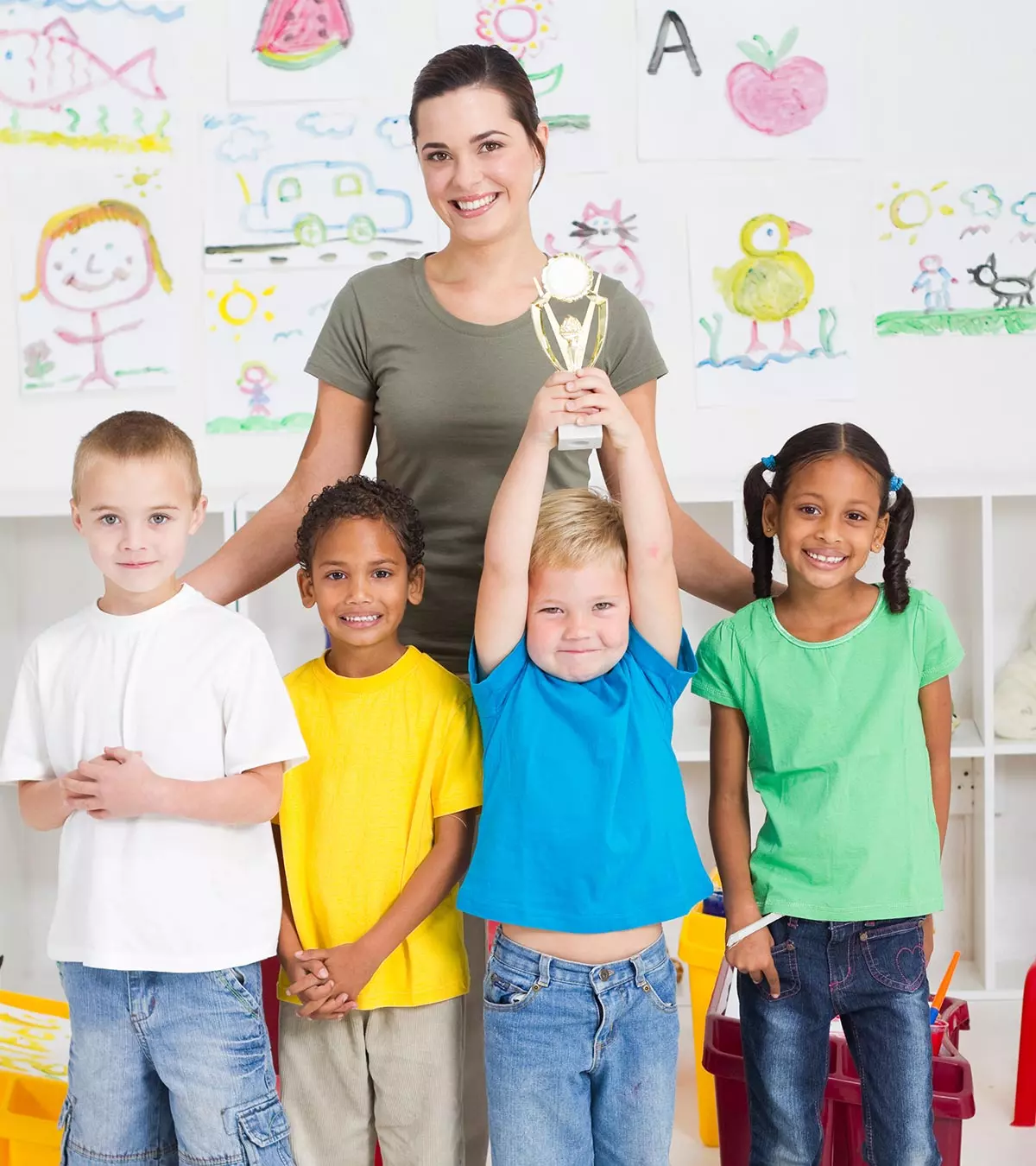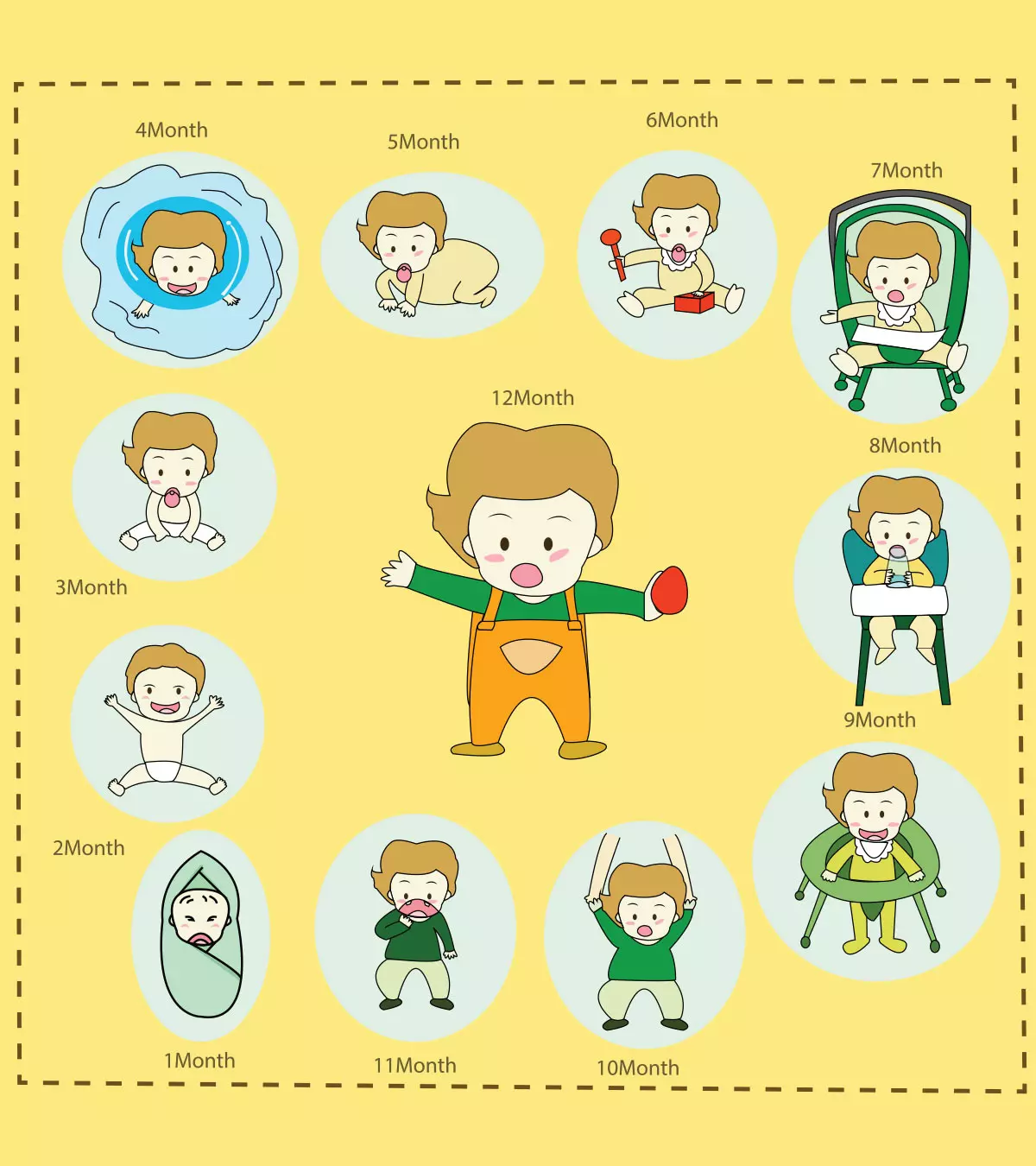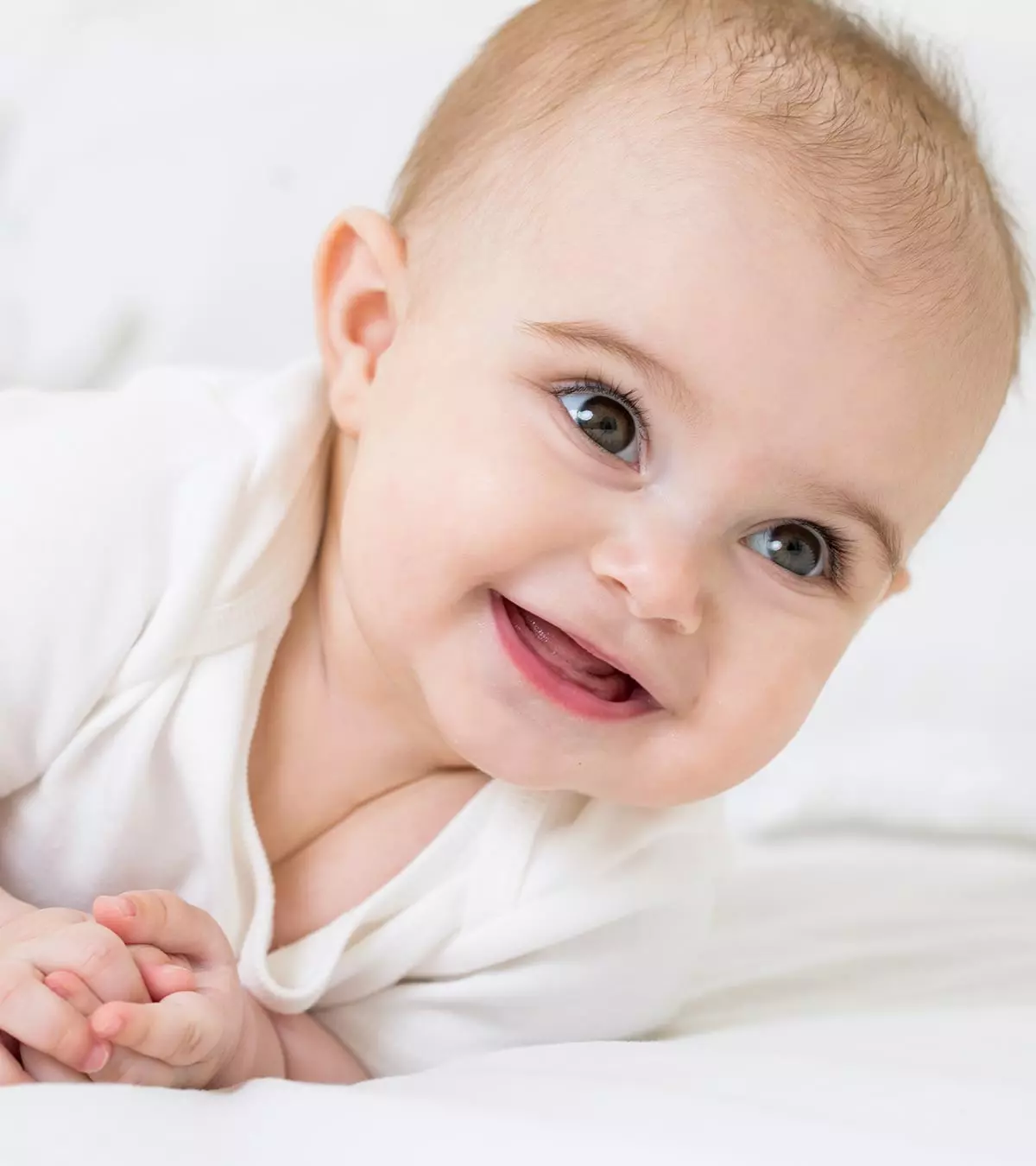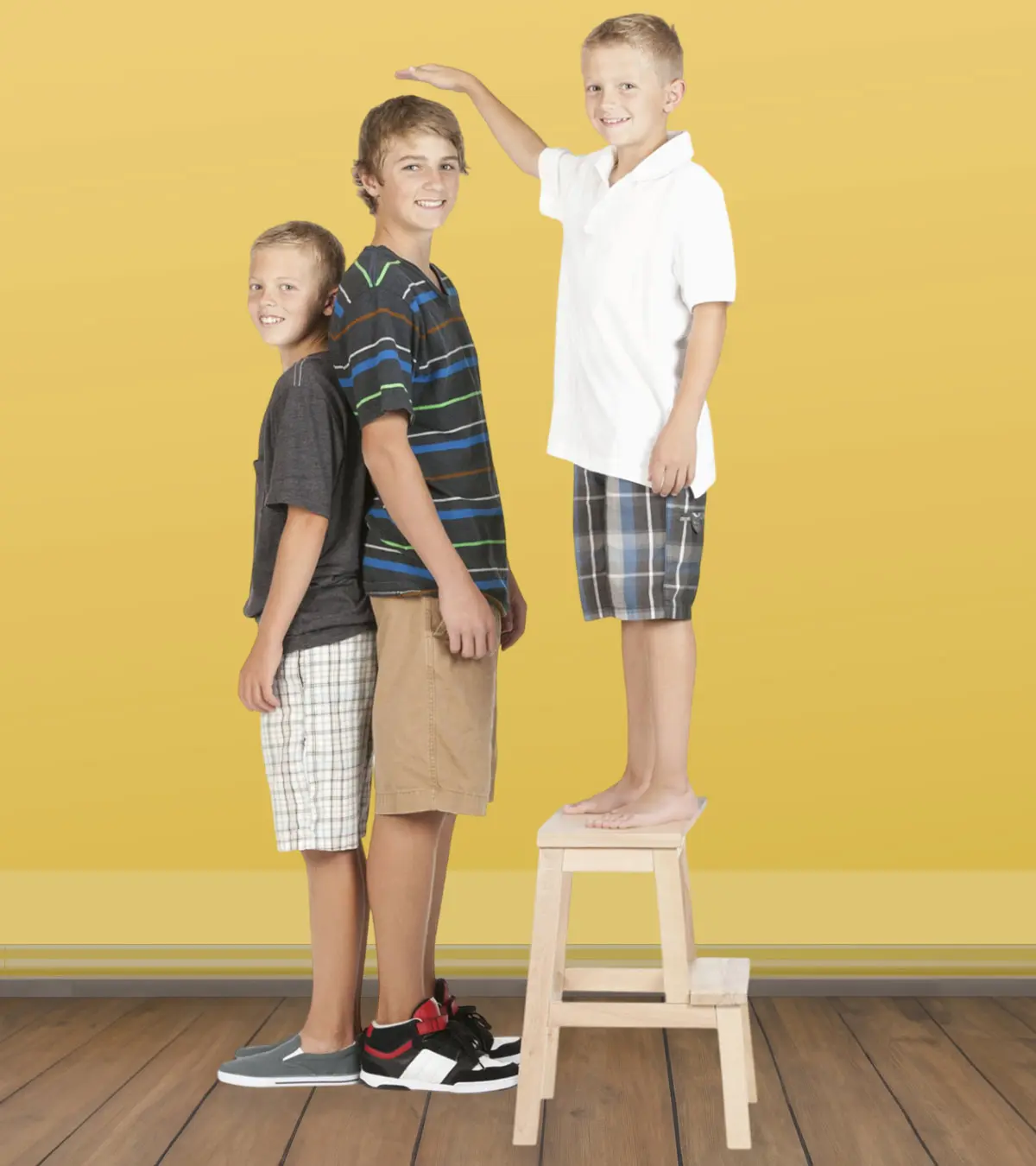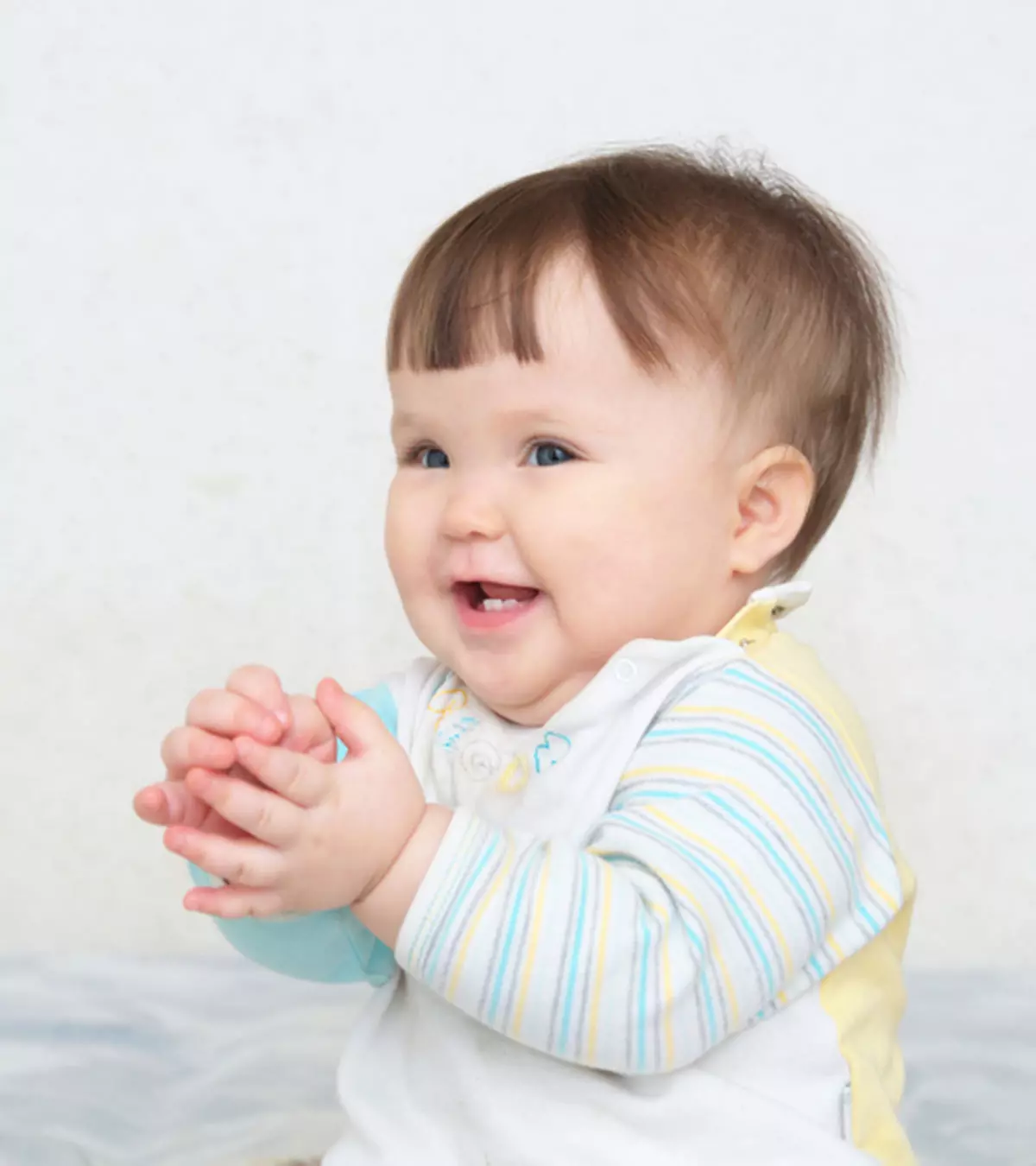
Image: ShutterStock
Clapping hands is an achievement many parents look forward to in their babies. You may wonder when do babies clap their hands and how you may promote it. Clapping is one of the various infantile developmental milestones, which can be stimulated with the right amount of interaction and encouragement. Once a baby begins to clap, they may do so for various reasons, including showing affection, delight, glee, enjoyment, and amusement. Claps may also signal that the baby’s motor skills and coordination are developing normally. This post explains all about babies clapping their hands and encouraging them through activities.

Key Pointers
- Babies usually learn to clap when they are nine months old.
- A baby’s attempt to clap indicates developing motor and communication skills.
- Activities such as clapping at various speeds or clapping with music could encourage the development of this milestone.
- Don’t panic if your infant cannot clap yet; each baby develops at their own pace.
- Consult a pediatrician if a baby of more than one year doesn’t attempt to clap or doesn’t point at things.
When Do Babies Start Clapping?
Babies can usually clap hands from nine months, the age when babies begin to imitate gestures, including hand gestures, made by others (1). It is okay if a 9-month-old baby does not clap. They may gradually develop the skill and clap by their first birthday.
Why Do Babies Clap Hands?
Babies may clap due to reasons related to their physical and cognitive development milestones. The following are some of the likely reasons why babies clap hands.
1. Development of motor skills
The first year of a baby’s life involves several growth and development milestones that include skills related to hand movement (2). Picking and holding objects, passing objects from one hand to another, and waving and pointing with hands are some of the key achievements during this phase (3). Clapping hands is part of the natural progression of a baby’s gross and fine motor skills.
2. Perception of achievement

We often clap our hands to encourage the baby when they do certain activities. Babies are keen observers and can understand cause and effect through repeated observation. The little one may eventually realize that clapping hands is a form of reward for achievement or celebration. Therefore, babies may clap their hands out of cheerfulness when they feel they have achieved something or feel excited after doing something.
3. Means of communication
Clapping is a baby’s way of communication. Initially, they clap their hands to imitate their caregivers, but as they grow older, they associate clapping to express their feelings and convey their messages. Babies may clap hands in front of parents or caregivers to gain attention, express their jubilation or exuberance, or even answer questions.
 Did you know?
Did you know?4. Attempt of experimentation
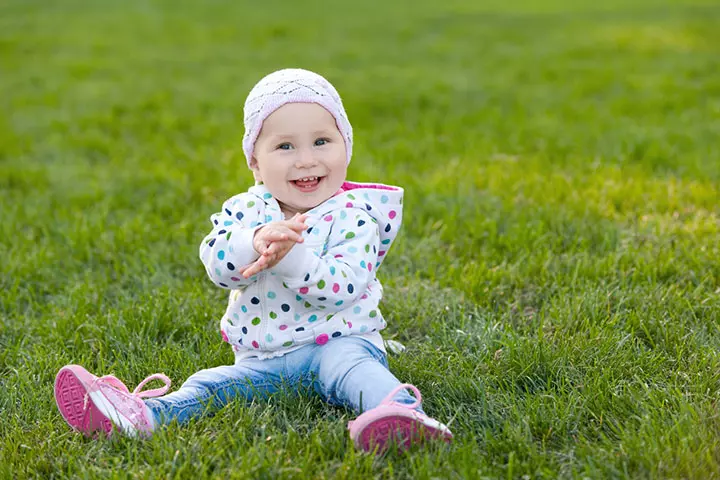
Babies discover the world and even parts of their bodies through experimentation. A baby may act to see the reaction it elicits from parents/caretakers or the sensation and noise it induces. Clapping hands could be a baby’s way of figuring out what happens if both hands meet. Some babies may get fascinated with the sensation of the hands touching each other and find it entertaining.
Which Skills Are Associated With Clapping Hands?
Clapping hands is associated with working memory, inhibition, and cognitive flexibility (4). It is the foundation of developing fine motor skills, hence a developmental milestone in babies. For instance, listening to rhymes can help them understand the rhythm that makes them excited and engaged, promoting clapping.
Activities To Encourage Your Babies To Clap Hands
Your babies tend to copy you, so they will try to do the activities you repeat in front of them. You may try the following activities to encourage your baby to clap.
1. Playing games
Playing is always fun and more exciting when there is a combination of songs with activities. This will develop the verbal skills, fine motor skills, and cognitive skills of your baby.
You can play and amuse them with the following games.
- Pat-A-Cake, Pat-A-Cake, Baker’s Man
- Little Piggy
- A Sailor Went To Sea
- Down Down Baby
- Miss Susie
- Pretty Little Dutch Girl
- Pease Porridge Hot
- If You’re Happy And You Know It
- Hokey Pokey
- Miss Mary Mack
2. Clapping combined with rhymes
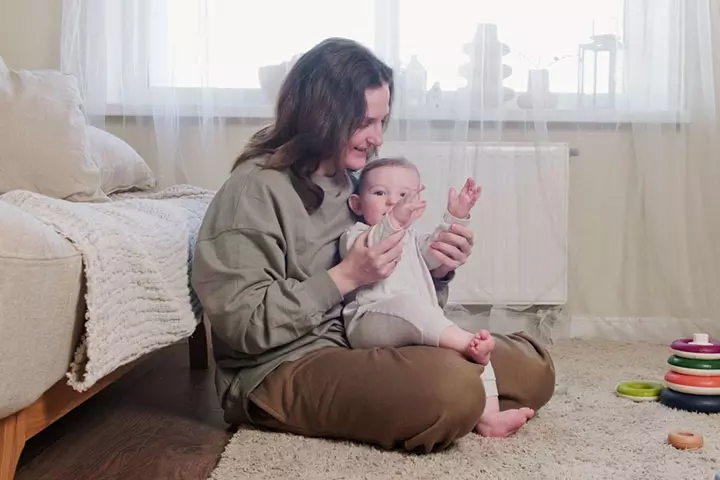
Take your baby’s hands in your hands and gently show them the motion of clapping. Do it slowly. Laugh and appreciate them when the hands join to clap.
Play any nursery rhyme or any song you like to set the demonstration in rhythm for your baby. Repetition of this activity will help the baby understand the gesture better.
 Quick tip
Quick tip3. Clapping with different speeds
Babies like unexpected events and varieties. Providing variation in clapping speeds will help to get their attention and develop their interest. This is because babies naturally respond to interactive and responsive behavior from caregivers. Research also shows that when mothers copy their baby’s actions around 14 months, it helps improve the baby’s ability to imitate others by 18 months. This kind of interaction builds both attention and learning skills (5).
4. Giving high fives
It will teach your baby that slapping palms together has meaning. Babies are delighted and will smile when you “high-five” them frequently. According to Reading Rockets, by 16 months, babies begin using more symbolic gestures, including giving a high five or making the peace sign (6).
5. Applauding
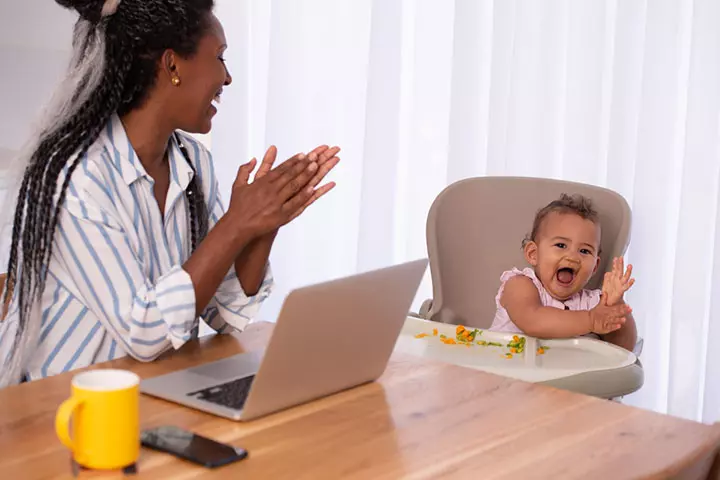
Applaud your baby for their little achievements, like when they get building blocks in shape, join the puzzle parts correctly, or pick the right things when told. You can also clap and cheer for your baby when they finish their meals or feedings. Research shows that the way parents praise their toddlers can influence their development in the long term. One study found that toddlers who received praise focused on effort and actions (called process praise) between ages one and three were more likely to develop a growth mindset by age seven or eight (7).
What If The Baby Isn’t Clapping?
A baby may achieve developmental milestones at a slightly different age than his/her peers. Also, there could be variations in abilities across babies of the same age. Therefore, do not panic if your baby does not clap. They might gradually pick up clapping by 12 months of age.
While every child develops at their own pace, the absence of gestures like clapping by 12 months can sometimes signal a delay in social or motor development. Here are a few signs that may warrant further evaluation (8):
- Not responding to their name by 12 months. Studies suggest that if a baby doesn’t respond to their name by 12 months, it could be a sign of developmental disorders (9).
- Not using gestures like waving, pointing, or clapping by 12 months
- Lack of interest in interacting with caregivers or other children
- Limited babbling or vocal sounds
- Poor muscle control or trouble coordinating movements
If your one-year-old does not imitate clapping or other gestures, does not point to things, or seems to lose skills gradually, then speak to a pediatrician. The doctor will assess various developmental milestones of the baby to determine any delays.
Milestones To Expect After The Baby Learns To Clap
After your baby masters the art of clapping, there are several milestones that follow by the age of 18 months (10).
- Standing up without support
- Start taking their first steps
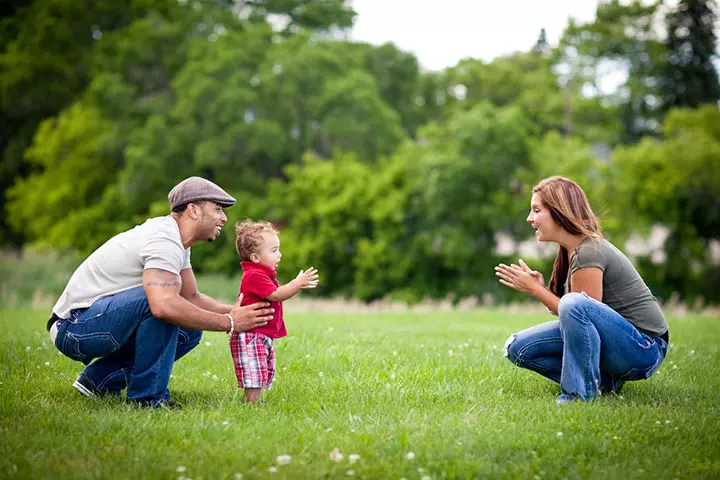
- Say their first words, such as “Mama” and “Dada”
- Follow your simple directions, like “find the ball” or “point your nose”
- Shake their heads to answer your questions in “yes” or “no”
What Other Hand Movement Milestones Will The Baby Achieve?
A baby achieves several hand motion milestones as they grow. By nine months, they can pull food towards themselves apart from clapping. When they reach their first birthday, they can pick items between their index finger and thumb. By 15 months, they may be able to feed themselves with their fingers (11).
However, some babies may achieve these milestones earlier or later than others. If your baby did not reach a particular milestone during the specified age bracket, do not worry. They may learn it later. You may talk to their pediatrician about their general developments.
Frequently Asked Questions
1. Why is clapping good for babies?
Clapping can be a fun and interactive activity for babies as it helps to develop their sense of rhythm and motor skills. Physical clapping involves coordinated movement of the hands, arms, and fingers, which can help to improve dexterity and hand-eye coordination. Additionally, the sound and visual stimulation associated with clapping can help engage a baby’s developing senses, such as hearing and vision.
2. Does clapping improve memory?
Clapping as an activity may not directly improve memory, but some evidence suggests that incorporating physical movement, such as clapping, into learning can enhance memory retention. This is because physical movement can help engage multiple senses, creating stronger and more vivid memories. Additionally, the act of clapping can also serve as a way to consolidate and reinforce memory, making it easier to recall information in the future (4). However, more research is needed to fully understand the connection between physical movement and memory.
Though many babies start clapping at nine months, some parents might wonder when do babies clap. Many parents associate clapping as a milestone since it may signal physical and cognitive development. Clapping also signifies the development of the baby’s gross and fine motor skills. You could encourage your little one by introducing them to clapping games or by clapping to nursery rhymes. However, consult your pediatrician if your baby does not clap, point to objects, or show any gestures at one year.
Infographic: How About Some Joyful Clapping?
Clapping indicates a healthy progression of a baby’s developmental milestones. Whether they clap while imitating or applauding something spontaneously, it is a joyful moment for you and your baby. The following infographic provides a list of rhymes and songs you can sing to your baby to encourage clapping and make it even more fun.
Some thing wrong with infographic shortcode. please verify shortcode syntaxIllustration: When Do Babies Clap? Age And 5 Activities To Encourage Them

Image: Dall·E/MomJunction Design Team
References
- Important Milestones: Your Baby By Nine Months; Centers for Disease Control and Prevention
- Fine motor skills: birth to 2 years; Children’s Hospital of Richmond at VCU
- Milestone Moments; Centers for Disease Control and Prevention
- Enhancing and Practicing Executive Function Skills with Children from Infancy to Adolescence; Harvard University
- Essler, Samuel, et al; (2025); Longitudinal Evidence That Infants Develop Their Imitation Abilities by Being Imitated.
- Baby and Toddler Milestones: 16 Gestures by 16 Months; Reading Rockets
- Gunderson, Elizabeth A., et al; (2013); Parent Praise to 1-3 Year-Olds Predicts Children’s Motivational Frameworks 5 Years Later.
- Communication Milestones: Birth to 1 Year; American Speech-Language-Hearing Association
- Okoye, Chiugo, et al; (2025); Early Diagnosis of Autism Spectrum Disorder: A Review and Analysis of the Risks and Benefits.
- Important Milestones: Your Child By Eighteen Months; Centers for Disease Control and Prevention
- CDC’s Developmental Milestones; Centers for Disease Control and Prevention
- Developmental Milestones: Fine Motor Skills and Visual Motor Skills; Children’s Hospital of Orange County
Community Experiences
Join the conversation and become a part of our nurturing community! Share your stories, experiences, and insights to connect with fellow parents.
Read full bio of Katherine Paxton
Read full bio of Rohit Garoo
Read full bio of Dr. Ritika Shah
Read full bio of Vidya Tadapatri





